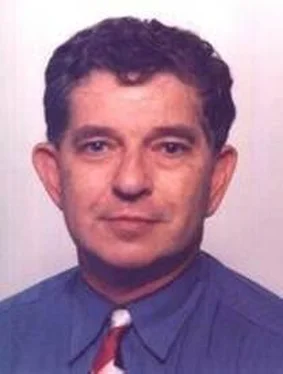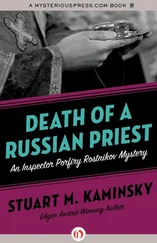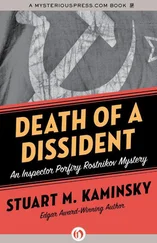Joelle Fineberg rose. So did Mac and Pease. Louisa Cormier remained seated, her eyes fixed on Mac.
In the elevator going down, Joelle Fineberg said, "'Right out in the open?' Where did you get that, Poe or Conan Doyle?"
"From one of the Louisa Cormier novels," said Mac. "I don't know where she got it."
The elevator arrived at the lobby and the doors opened.
"Call me when you have something," she said.
Mac nodded.
In the lobby they passed McGee, the doorman, who nodded and smiled. It was snowing again, not much, but it was snowing. The temperature had dropped to five above zero.
"The gun is in this building," said Mac. "She can't get rid of it."
"Why?"
"Because we know she owns it," he said.
"You examined her gun," said Fineberg. "It hasn't been fired."
"The gun she showed us hadn't been fired," he corrected.
It was the lawyer's turn to nod.
"And the bolt cutter?" asked Joelle Fineberg. "What if she did get rid of it?"
"She thinks she's smart enough to pull it off."
"What?"
Mac smiled and walked toward the stairwell. Joelle watched him for a few moments and then buttoned her coat, wrapped her scarf around her neck, and put on a pair of dark earmuffs she took out of her pocket.
When she looked back over her shoulder, Mac was no longer in sight. McGee opened the door for her and she stepped out into the bitter, biting cold.
* * *
"Where did you get this?" asked Hawkes.
"Tissue in the garbage," answered Danny. They were sitting in the tile-floored box of a room in the basement of CSI headquarters where the coffee-, soda-, sandwich-, and candy-dispensing machines lined the walls like slot machines in Las Vegas washrooms. Above them, one of the bank of florescent lights sputtered softly.
Sheldon Hawkes put his tuna fish sandwich with too much mayo on the paper plate in front of him and took the slide from Danny.
"Come up and take a look at it under the microscope," said Danny.
"You've identified it?" asked Hawkes, handing the slide back and picking up his sandwich.
"Rare, but not all that rare," said Danny.
"You tell anyone?"
"No one around," said Danny. "Stella called. She said she was on her way in, asked me to have all the Spanio crime-scene photographs out."
"How did she sound?"
"Sick," said Danny.
Hawkes finished his sandwich, downed the last of his Diet Dr Pepper, threw his trash away, and got up.
"Let's take a look," he said.
* * *
On the table in front of Stella were neatly arranged photographs of the bedroom in which Alberta Spanio was murdered and the bathroom adjacent to it. It was the bathroom in which she was interested right now.
She selected four photographs and scanned them, her head bent close to each image. Her recollection proved to be right. Leaning over increased the pain in her head and the threat in her stomach.
Stella reached for the tea she had been trying to sip in the hope of it settling her stomach. The tea was not inviting. She changed her mind.
She was sure she was right. She was reasonably sure she knew what had happened and who had killed Alberta Spanio and maybe even why Collier had been murdered. If it weren't for the flu, which she now acknowledged, she would have figured it out much sooner.
Someone came through the laboratory door behind her. Stella stood up and turned. She felt light-headed but determined.
Hawkes came in with Danny.
"I figured it out," she said, wondering what Hawkes was doing here. He seldom left his corpses except to eat and go home.
"What?" asked Danny, approaching with Hawkes at his side.
"The Spanio murder," she said.
"Great," said Danny.
"I've got to call Mac," said Stella.
"I've got some slides I want you to look at right away," said Danny.
Hawkes held up two slides.
"Can't it…?"
Hawkes was shaking his head, "no."
"What's going on here?" she asked.
"Look at the slides," said Danny.
Stella sighed and moved to a microscope, switching on the light and taking the slides from Danny. She sat down, the two men looming behind her. She adjusted the focus on the first slide. The microscope was multifunctional and powerful. With a few adjustments, she had the slides lined up next to each other so they could be compared.
"Virus," she said. "Same on both plates."
"You know what it is?" asked Hawkes.
"Don't recognize it," said Stella.
"It's leptospirosis," said Hawkes.
Stella blinked, going through the catalogue of diseases in her mind.
"It's rare," Stella said.
"One to two hundred cases a year in the United States," said Danny. "Half of those in Hawaii. It's a tropical-climate disease normally."
"We have an exception," said Hawkes. "What do you know about the disease?"
"Bacterial infection usually caught from animal urine," she said. "One of our cases? Lutnikov, Spanio, Collier, one of Dario Marco's men?"
"No," said Hawkes. "It's you. Danny got a sample of your mucus from a tissue you threw away. You don't have the flu. What do you know about leptospirosis?"
"Next to nothing," said Stella, leaning back and closing her eyes.
Hawke's hand touched her forehead.
"Fever," he said. "Headache?"
"Yes."
"Chills, muscle ache, vomiting?"
"Nausea, no vomiting."
Hawkes gently turned her in the chair and looked at her face.
"Slight jaundice, red eyes," he said.
"You sound like you're doing an autopsy," Stella said.
"My patients don't usually talk back," he said. "Abdominal pain, diarrhea?"
"A little of both," Stella said.
"Hospital," said Hawkes.
"How about outpatient treatment?" she asked. "I'm really close on the Spanio murder."
"Danny can follow through. You know what untreated or improperly treated leptospirosis can turn into? Kidney damage, meningitis, liver failure. I've seen one death from it. When did you start showing symptoms?"
"Yesterday," Stella said, resigned. "Maybe the day before."
"You remember being exposed to animal…?" Hawkes began.
"The cats," said Danny.
"What was that?" asked Hawkes.
"Old woman died in her home on the East Side," said Stella. "Cat woman, forty-seven we could find. We ran it as a crime scene because there were signs that someone had broken into the house, but she had a heart attack. Overweight, seventy-eight years old. Didn't take care of herself."
"Or her cats," said Hawkes. "Where are they now?"
"Humane society took them," said Danny.
Hawkes shook his head.
"See if you can round them up," Stella said to Danny.
"If there are any recently dead ones," Hawkes said, "I'd like to have them brought in."
"My guess," said Stella, "is that, except for a lucky few, they were all euthanised and cremated. Treatment?"
"Overnight in a hospital bed," said Hawkes. "Antibiotics, probably doxycycline. I'll call Kirkbaum and have a room saved for you."
"How long?" asked Stella.
"If we caught it early enough, two or three days. If not, we could be talking a week or two. Judging from the viral load, it may just be that Danny saved your life."
Danny grinned smugly and adjusted his glasses.
"I'm a stubborn ass," she said. "Thanks."
"You're welcome," said Danny. "And, yes, you are one major stubborn ass."
Stella stood and said, "Danny, gather all these Spanio photos and tell Mac to come to the hospital as soon as he can get there."
"You'll be all right," said Hawkes. "I haven't had a complaint from a patient yet."
"That's because they're all dead," said Stella.
* * *
There was a uniformed cop at the entrance to Marco's Bakery and another uniformed cop at the back exit on the shipping dock. This didn't surprise Big Stevie.
Читать дальше












